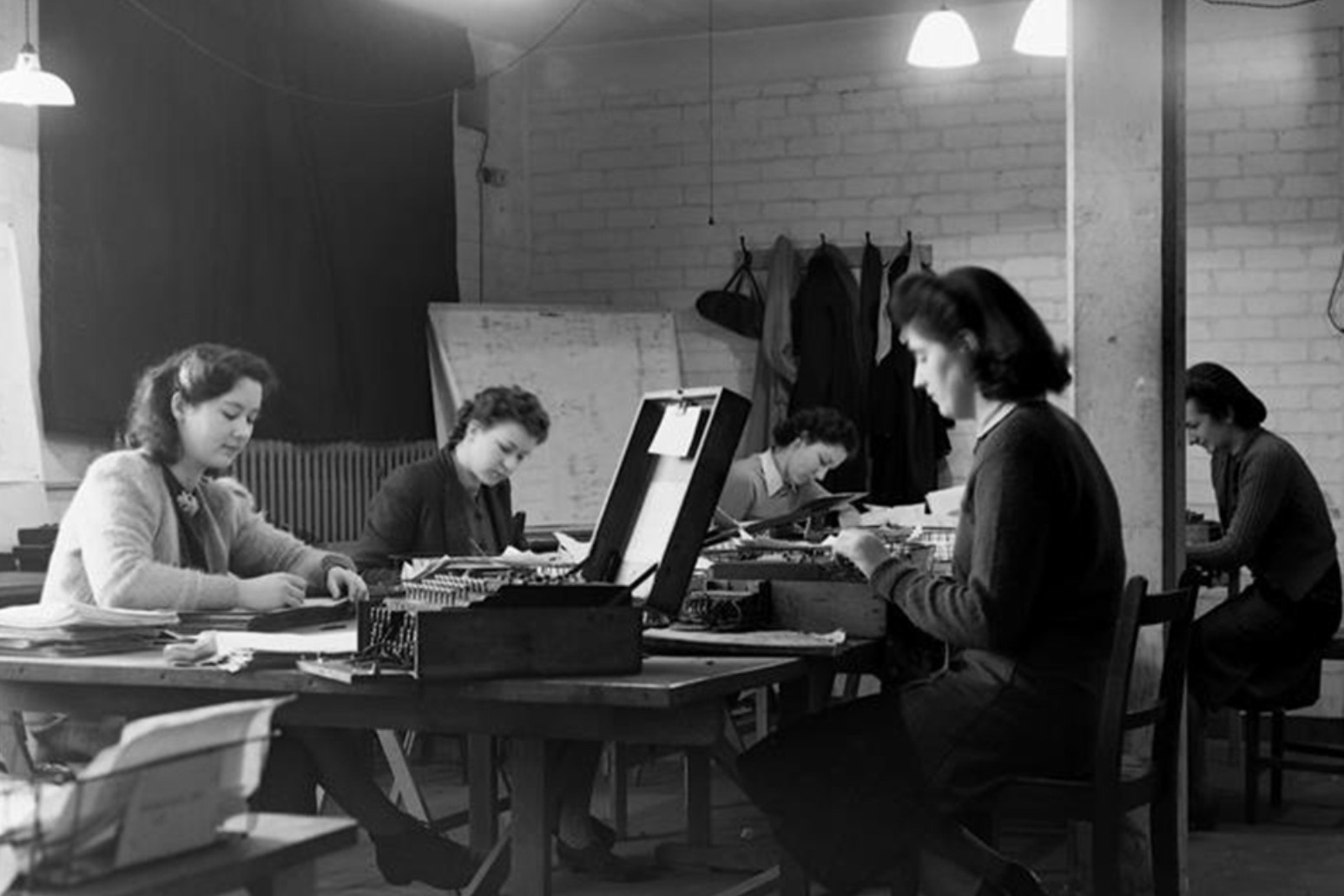Listeners:
Top listeners:
-
 play_arrow
play_arrow
Rother Radio (128K) Love Local, Love Music!
-
 play_arrow
play_arrow
Rother Radio (64K) Love Local, Love Music!
-
 play_arrow
play_arrow
Rother Radio (South Yorkshire) (64K) Love Local, Love Music!
-
 play_arrow
play_arrow
Rother Radio (South Yorkshire) (128K) Love Local, Love Music!
-
 play_arrow
play_arrow
Rother Radio (Doncaster) (64K) Love Local, Love Music!
-
 play_arrow
play_arrow
Rother Radio (Doncaster) (128K) Love Local, Love Music!
-
 play_arrow
play_arrow
Rother Radio Xmas Love Local, Love Music!
-
 play_arrow
play_arrow
Rother Radio – Special Announcement Love Local, Love Music!
Letter reveals how wartime codebreakers were told jobs had ended after VJ Day
today12/08/2025


Letters released by GCHQ have revealed how wartime codebreakers were granted holiday and told their jobs were over after VJ Day.
The intelligence agency has published historic documents to mark the 80th anniversary of Victory in Japan Day, shedding light on what happened to staff who deciphered Nazi messages during the Second World War.
A first letter dated August 12 1945 was sent to staff at GCHQ’s wartime headquarters, Bletchley Park, days before VJ Day was declared on August 15.
It said: “All staff except the absolute minimum necessary to maintain essential services, will be granted two days paid holidays to mark the end of hostilities in Asia.”
According to GCHQ, extra holiday would not have been usual for staff working at the agency, then called GC&CS (Government Code and Cypher School).
The document added: “After the VJ holidays, it is hoped that there will be no further shift working at B/P except for ‘essential services’.”
GCHQ staff were bound by the Official Secrets Act and were unable to talk about their secret work they carried out during the war.
The second letter documents a template for telling staff their employment had ended.
Their managers would have filled in the correct dates and sent it to their teams.
It reads: “Owing to the cessation of the hostilities, there is no further work for you to do in this organisation. In these circumstances there is no object in continuing to report here for duty, and with effect from ****** you are free to absent yourself.
“This letter is to be taken as formal notice of the termination of your employment in this department.”
The documents show what happened to British war efforts in the days surrounding the surrender of Imperial Japan in the Second World War.
At the once-secret site, wartime codebreakers used early forms of computer intelligence – cryptanalytical machines called bombes – to break the Enigma code used by the Nazis to encrypt messages, changing the course of the war and saving millions of lives.
Their work enabled British intelligence to move more quickly and act on the information the Bletchley team gave them, contributing to a number of key military victories.
It also sparked the industrialisation of codebreaking and helped pave the way for the first forms of the computers used today.
After the war, in 1946, GC&CS became GCHQ and moved out of Bletchley Park, developing into the intelligence and cyber agency it is today.
GCHQ director of technology futures Marsha Quallo-Wright said: “As someone working at the forefront of new and emerging technology for GCHQ, understanding our rich history is as important to me as looking to our future.
“We have a lot to thank our predecessors for, and the dedication and innovation shown by those working at Bletchley Park, GCHQ’s wartime home, never ceases to amaze me.
“These documents help us to understand what happened to that workforce after six long years when VJ Day was declared. I’m pleased that we’re able to offer this insight into their world.”
Published: by Radio NewsHub
Written by: Radio News Hub
Similar posts
Now Playing
Now playing: -
On Air Now

Paul Harvey
The Afternoon Show
Join Paul for the best variety of hits through your workday afternoon.
closeSponsored
Weather
Upcoming Local Event
Latest from Facebook
Search Rother Radio
Contact Us
- https://www.rotherradio.co.uk
- 01709 257 175
- studio@rotherradio.co.uk
About Us
Rother Radio – Love Local, Love Music! → Discover more
Our Partners
Rother Radio is owned by Rotherham Broadcasting CIC







